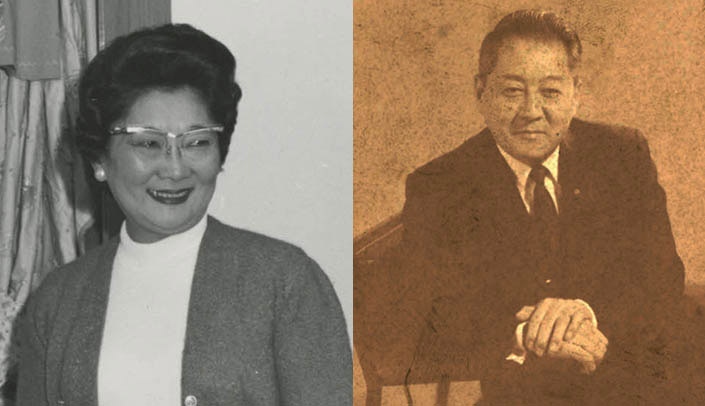In 1942, Father Flannagan from Boys Town petitioned the U.S. government to allow 50 Japanese Americans interned in California to come to Omaha. They were to fill positions at Boys Town vacated by workers on military duty. Patrick and Lily Okura were two of those individuals who found a home in Omaha and later at the University of Nebraska College of Medicine.
As Nisei (children born in the United States to Japanese-born immigrants), both Patrick and Lily were born and raised in California. Patrick received his master’s in psychology from UCLA in 1936, and Lily was a graduate of the Long Beach Secretarial College.
They had been married only a short time when the U.S. government forced them into an internment center at the Santa Anita Racetrack. They lived in an 8-by-8-foot converted horse stable located within a facility that they shared with 17,000 other people. Lily organized entertainment and education for the detainees, while Patrick acted as a spokesman. War, fear and prejudice had shattered their lives. Father Flannagan’s petition and assistance provided them with a new and rarefied opportunity to start over.
At Boys Town, Patrick began work as an intake supervisor, and Lily worked as a secretary. After several years, Patrick left to become the chief probation officer for the Douglas County Juvenile Court. In 1963, Patrick accepted a position as a state planner for Nebraska’s mental health programs with the Nebraska Psychiatric Institute (NPI) at the University of Nebraska College of Medicine. He eventually rose to the rank of assistant professor in the College of Medicine Department of Psychiatry.
After leaving Boys Town, Lily worked as a secretary at the YWCA. She later became the administrative secretary for Duane Johnson, the superintendent of University Hospital. In 1963, Lily was appointed as the administrator for the Meyer Therapy Center. In this role, one of her duties was fundraising. She knew the Center inside-out and presented to countless community groups. In 1968, Lily became the director of volunteer services at University Hospital. She opened the gift shop and created the Art Cart, a program that allowed patients to choose the art that would hang in their hospital rooms. She also designed the volunteer uniforms.
The Okuras were active in causes important to them, such as the Japanese American Citizens League. The Civil Liberties Act of 1988, in which the United States granted reparations to Japanese Americans whom the government had interned during WWII, allowed the Okuras to found the Okura Mental Health Leadership Foundation at UCLA.
Patrick passed away on Jan. 30, 2005, and Lily passed away on June 14, 2005.
To learn more about the Okuras, read “Victory Without Swords: The Story of Pat and Lily Okura, Japanese American Citizens in 1941 America,” written by Robert B. Kugel, MD, dean of the College of Medicine from 1969 to 1974.

Interesting history. Thanks Erin